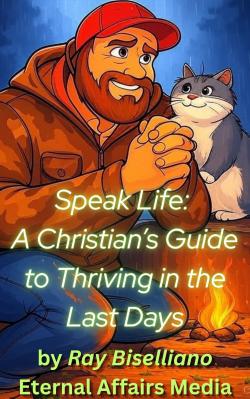These messages now stand like digital tombstones, marking the death of a relationship that once thrived.
The Ghosts in Our Phones: Navigating the Nostalgia of Faded Conversations …
By Morris Wambua | Staff Writer | Eternal Affairs Media
We are in the era of digital omnipresence. What an interesting time to be alive! In this era, every beep of our phones signals a new connection or a rekindling of old ones but still, a peculiar and persistent loneliness reverberates. This loneliness is not of the tangible sort but a ghostly residue that lingers in our devices. I’m talking about the remnants of conversations with people who once occupied significant spaces in our lives, people with whom we shared our dreams, fears, and laughter. Now, these conversations have fossilized into cold, silent text messages, forgotten in the depths of our chat histories. For many of us, this scenario is all too familiar. It’s the unsettling feeling of scrolling through your phone, coming across a name that used to make your heart skip a beat, only to realize that you haven’t spoken to them in months, maybe even years. The chat window is filled with memories—inside jokes, late-night confessions, plans that never materialized—each message a timestamp of a moment that once was. Yet, these messages now stand like digital tombstones, marking the death of a relationship that once thrived.
The Unseen Hand of Ghosting

The term “ghosting” has become a part of our modern lexicon, especially in the age of instant messaging and social media. To be ghosted is to be suddenly and inexplicably cut off from someone who once engaged with you regularly. No explanation, no farewell—just silence. The reasons for ghosting can be as varied as the people who do it. Perhaps it’s the discomfort of confrontation, the desire to avoid emotional entanglements, or simply the waning of interest. In Kenya, where relationships—both romantic and platonic—are deeply rooted in cultural and social contexts, ghosting takes on a unique significance. The act of disappearing from someone’s life without a trace often leaves the other person grappling with confusion and hurt. Unlike in some Western contexts where individualism can sometimes overshadow communal ties, in Kenya, the bonds of friendship and family are often considered sacred. To ghost someone here is to break an unspoken social contract, and the emotional aftermath can be profound.
The Weight of Silence
There is a particular weight to the silence that follows a once-active conversation. It’s a silence that doesn’t merely signify the absence of words but the absence of a connection that once felt unbreakable. In Kenya, where community and communication are often interwoven, this silence can feel especially heavy. The void left by a ghosted relationship is not just personal; it can ripple through social circles, causing awkwardness at gatherings or tension among mutual friends. Imagine receiving a WhatsApp message notification, only to see that it’s from someone you haven’t spoken to in years. The last message was a simple “goodnight” or perhaps a casual “talk to you tomorrow,” sent in a different time, a different context. Now, the sight of their name on your screen evokes a strange mix of emotions—surprise, curiosity, and a tinge of anxiety. What could they possibly want now? Should you respond? And if you do, what do you say? The weight of this decision is palpable because, in some way, it feels like you’re reopening a chapter that was never fully closed. In many Kenyan cultures, where relationships are often maintained through regular communication and physical presence, the sudden cessation of contact can be jarring. It’s not uncommon for people to feel betrayed or abandoned when a friend or loved one stops communicating without explanation. This is particularly true in rural areas, where community ties are strong, and everyone knows each other’s business. To be ghosted in such a context can lead to gossip, speculation, and even social ostracism.
The Digital Tombstones

Our phones, once revolutionary tools of connection,have become repositories of these digital tombstones—conversations that have died yet linger on, waiting for a resurrection that may never come. Each chat thread is like a gravestone, etched with the last words exchanged, a reminder of what once was. The irony is not lost on us; in an age where we are constantly connected, where every thought can be shared in an instant, we’ve never been
more capable of disconnecting with such finality. The act of ghosting is not always deliberate. Sometimes it’s a slow fade, a gradual drifting apart that neither party fully acknowledges until one day, there’s nothing left to say. Other times, it’s a conscious decision—perhaps made out of self-preservation, fear of confrontation, or simply a desire to move on. But regardless of the reasons, the end result is the same: a once-lively conversation thread that now serves as a digital tombstone, a monument to a relationship that has passed. But what makes these digital tombstones particularly haunting is their permanence. Unlike in the past, when a severed relationship might have meant burning letters or erasing phone numbers, today’s ghosted relationships leave behind an indelible record. You can delete the chat, block the number, unfollow the account, but the memories remain etched in your mind, and the ghost lingers on in the peripheries of your digital world.
The Satire of Modern Connection
There is a dark satire in how we navigate relationships today. We are, on the surface, more connected than ever before. Our phones are overflowing with contacts, our social media accounts teeming with “friends,” and our messaging apps buzzing with activity. Yet, despite this, the connections we forge often lack depth and permanence. We pride ourselves on our vast networks, yet many of these relationships are shallow, fleeting, and easily disposable. In a society where traditional values often emphasize the importance of close-knit communities and lasting relationships, this irony is especially poignant. We celebrate the number of likes we receive on a post or the multitude of contacts in our phonebook, but how many of these interactions are meaningful? How many of these people would we turn to in times of need? The answer, for many, is disheartening. We’ve traded depth for breadth, replacing genuine connection with superficial interaction. It’s a trade-off that seems harmless
at first—after all, what’s the harm in having more friends, more followers, more likes? But as our networks grow wider, they also grow thinner, and we find ourselves in a paradoxical state: surrounded by people, yet profoundly alone. This is the satire of modern connection—a world where we are always connected, yet where ghosting is more common than ever.
The Sweet Ache of Nostalgia
Despite the numbness and the satire, there is a certain sweetness to the nostalgia that these ghosted conversations evoke. It’s the kind of ache that reminds us of what it was like to feel deeply, to care about someone with an intensity that only time can dull. These old messages, though frozen in time, are testaments to the moments we once cherished, the people we once held close. In a society where storytelling is a rich tradition, these ghosted conversations are like the oral histories of our digital lives. They tell the stories of friendships that flourished and faded, of love that bloomed and withered, of dreams that were shared and abandoned. Each message, each thread, is a chapter in the book of our lives, a reminder of who we were and who we’ve become. There’s a particular poignancy to this nostalgia ina Kenyan context. In a country where change is rapid—urbanization, technological advancements, and shifting cultural norms—these ghosted conversations serve as anchors to a simpler time. They remind us of the days before smart phones, before social media, when relationships were built face-to-face, and communication was more deliberate, more meaningful. Yet, even in this nostalgia, there is a bittersweet realization: the people we once knew are no longer the same, and neither are
we. The conversations that once felt so vital are now relics of a past that can never be fully recaptured. But perhaps that’s okay. Perhaps these ghosted conversations are meant to be just that—ghosts. They are echoes of who we once were, and though they may haunt us, they also remind us that we lived, we loved, we connected.
The Unanswered Questions
As we navigate the complexities of modern relationships, particularly in the digital age, we are often left with unanswered questions. Why did they ghost me? Should I reach out? Would things have been different if I had responded differently? These questions linger, unresolved, much like the ghosted conversations on our phones. Ghosting is not just a personal slight; it can feel like a rejection of the very values that many Africans hold dear—friendship, loyalty, and communication. The unanswered questions can weigh heavily, leading to feelings of self-doubt, regret, and sadness. But perhaps the most important question is not why someone ghosted us, but how we move forward. How do we reconcile with the ghosts in our phones, the people we once knew but no longer do? How do we find closure in relationships that end without explanation? These are questions that each of us must answer for ourselves, in our own time, in our own way. For some, the answer might be to reach out, to try to reconnect with the person who ghosted them. For others, it might be to let go, to accept that the relationship has run its course and that it’s time to move on. And for others still, it might be to simply acknowledge the ghosted conversation for what it is—a memory, a moment in time, a part of their personal history.
The Final Reflection
In the end, the ghosts in our phones are not just reminders of what we’ve lost but of what we’ve experienced. They are the digital echoes of our lives, the silent witnesses to our joys, our sorrows, our growth. And though they may no longer speak, they still have stories to tell. So the next time you find yourself scrolling through old messages, take a moment to reflect. These ghosted conversations, though painful, are a testament to the connections you once cherished. They are a reminder that you lived, that you loved, that you were once connected in ways that mattered. And though the numbness may persist, there is comfort in knowing that these connections, however faded, once meant something—and in some quiet, unspoken way, they always will.
Author

Morris Wambua is a freelance writer with a medical background and a dynamic understanding of sociology, politics, and spirituality. Known for his unapologetic Christian perspective, Morris has earned national recognition for his essay writing, including top honors in human rights competitions organized by Amnesty International Kenya. His writing blends his expertise in medicine with a profound insight into societal issues, offering thought-provoking and faith-driven perspectives.
View all posts Staff Writer
Pages: 1 2












